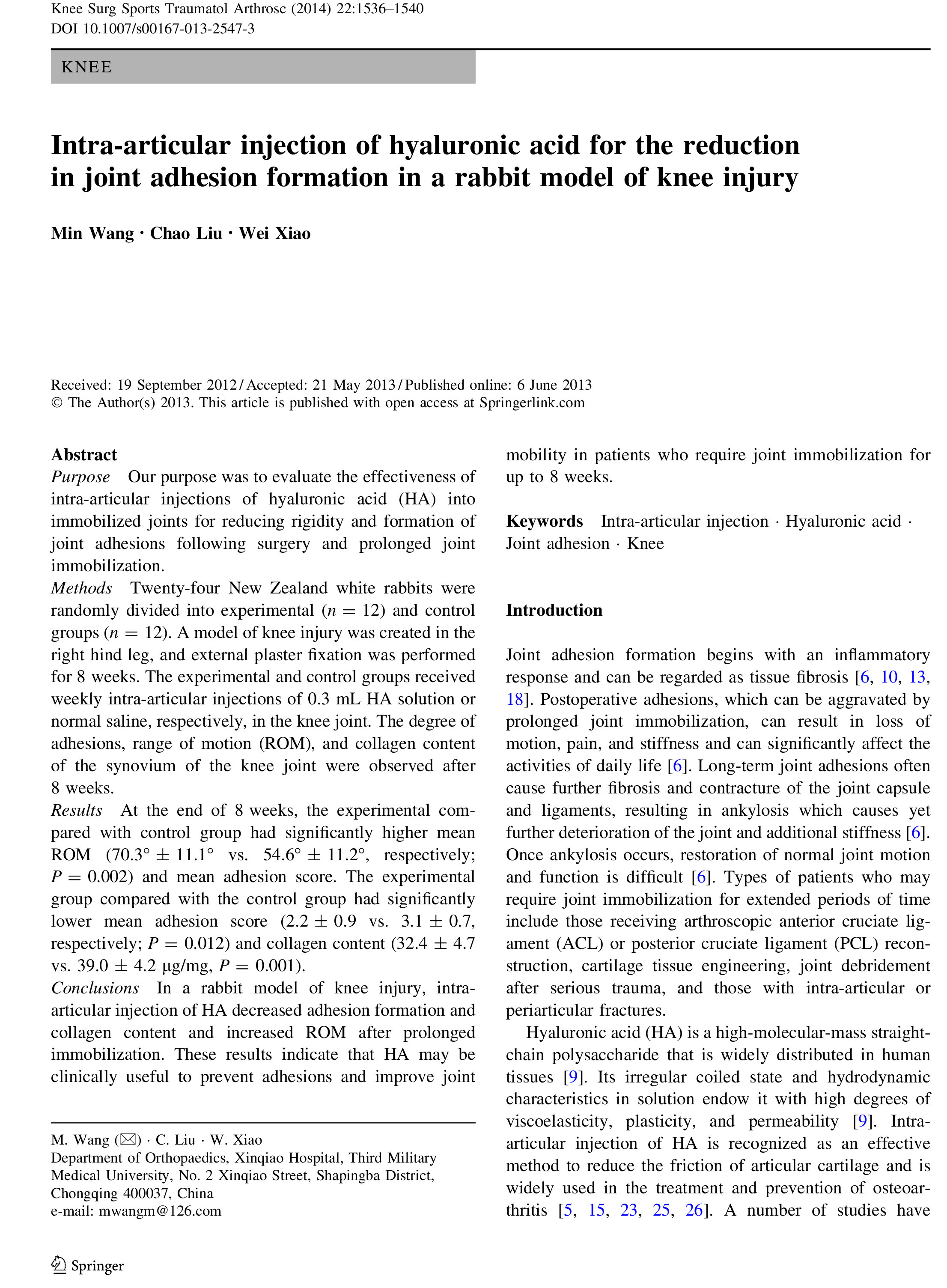
Evaluate the effectiveness of intra-articular injections of hyaluronic acid (HA) into immobilized joints for reducing rigidity and formation of joint adhesions following surgery and prolonged joint immobilization
Intra-articular injection of hyaluronic acid for the reduction in joint adhesion formation in a rabbit model of the knee
Article specifications
This clinical trial was published in 2014 in Journal of Knee Surg Sports Traumatol Arthrosc. Agents. (IF 2014:3.053) by Chinese specialists. Our purpose was to evaluate the effectiveness of intra-articular injections of hyaluronic acid (HA) into immobilized joints for reducing rigidity and formation of joint adhesions following surgery and prolonged joint immobilization. Twenty-four New Zealand white rabbits were randomly divided into experimental (n = 12) and control groups (n = 12). A model of knee injury was created in the right hind leg, and external plaster fixation was performed for 8 weeks. The experimental and control groups received weekly intra-articular injections of 0.3 mL HA solution or normal saline, respectively, in the knee joint. The degree of adhesions, range of motion (ROM), and collagen content of the synovium of the knee joint were observed after 8 weeks.
Result
In a rabbit model of knee injury, intra-articular injection of HA decreased adhesion formation and collagen content and increased ROM after prolonged immobilization. These results indicate that HA may be clinically useful to prevent adhesions and improve joint mobility in patients who require joint immobilization for up to 8 weeks.
Tags: china knee surgery sports traumatology arthroscopy Clinical trial 2014
